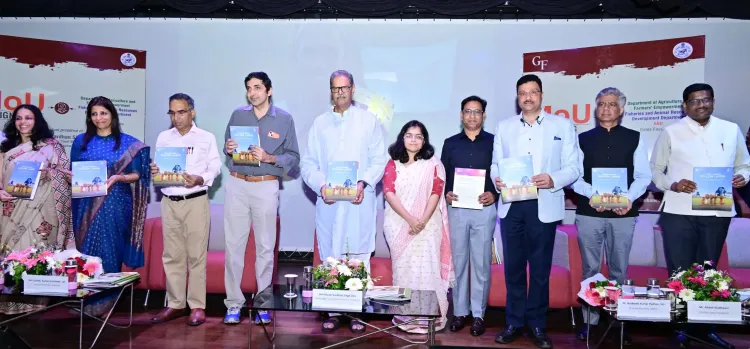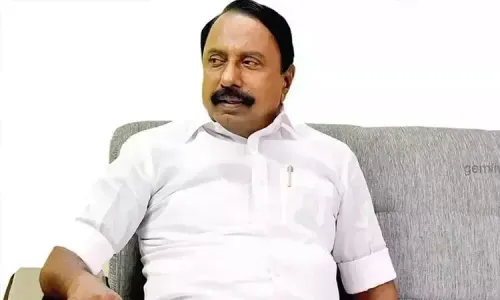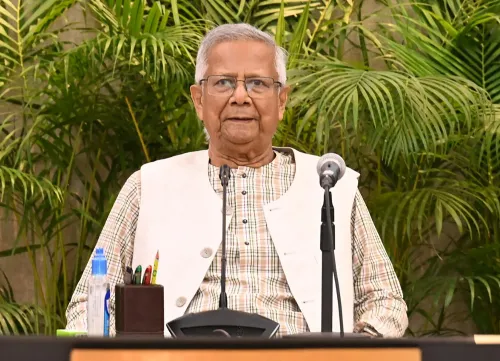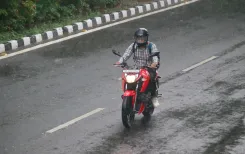What is the significance of the Odisha govt and Gates Foundation MoU for science-smart agriculture?

Synopsis
Key Takeaways
- Partnership between Odisha government and Gates Foundation.
- Focus on AI and climate-smart agriculture.
- Support for dairy and fisheries productivity.
- Climate Smart Agriculture Alliance launched.
- Data-driven strategies for agricultural planning.
Bhubaneswar, April 29 (NationPress) The Odisha government and the Gates Foundation formalized their partnership on Tuesday by signing a Memorandum of Understanding (MoU) aimed at fostering growth in critical areas such as AI-driven applications, precision agriculture, climate-smart innovations, and improving the productivity of dairy and fisheries.
This agreement paves the way for a multi-year partnership centered on providing technical support, conducting research, and implementing climate-smart agriculture practices in Odisha.
This strategic collaboration, supported by the Department of Agriculture and Farmers’ Empowerment (DAFE) and the Fisheries & Animal Resources Development Department (FARDD), aims to enact science-based interventions at the grassroots level to promote Climate Smart Agriculture.
Deputy Chief Minister K.V. Singh Deo highlighted that this MoU with the Gates Foundation represents a substantial advancement towards future-ready agriculture in Odisha.
“It reinforces our government’s dedication to investing in knowledge, innovation, and collaborations that will benefit farmers throughout the state,” stated Singh.
Alkesh Wadhwani, Director of Poverty Alleviation at the Gates Foundation, expressed that this newly formed alliance will act as a catalyst, uniting innovation and large-scale farmer adoption, thus positioning Odisha as a leader in sustainable agricultural growth. The state government agencies - DAFE, FARDD, and the Gates Foundation have also introduced the Climate Smart Agriculture Alliance Odisha.
This alliance will function as a cooperative platform uniting government bodies, research institutions, startups, civil societies, NGOs, farmer organizations, and private sectors to promote the adoption and innovation of climate-smart technology and strategies.
The event also featured the launch of a Scoping Report Series on “Data-Driven Prioritisation of Districts for Climate-Smart Agriculture in Odisha” by the Centre for Study of Science, Technology and Policy (CSTEP).
This report series presents a district-level evaluation of climate risks, resource utilization patterns, and agricultural emissions, providing a framework for creating District-Level Climate Action Plans and implementing CSA practices tailored to local conditions.
Additionally, a report by the International Food Policy Research Institute (IFPRI) titled ‘Transforming Fallow Lands - An Impact Evaluation of the Comprehensive Rice Fallow Management Program in Odisha (CRFM)’ was unveiled.
The IFPRI report assesses the impact of the Comprehensive Rice Fallow Management (CRFM) Program in Odisha, particularly regarding the conversion of fallow lands and its implications for the acreage and yields of pulses and oilseeds.
The study offers compelling evidence of heightened land utilization and productivity, illustrating how integrated data systems can effectively guide inclusive, data-driven agricultural planning and policy.
Furthermore, the Department released the Odisha Agriculture Statistics 2023-24, which provides a comprehensive overview of agricultural activities in the state. Statistical data is an essential input for policy formulation.









